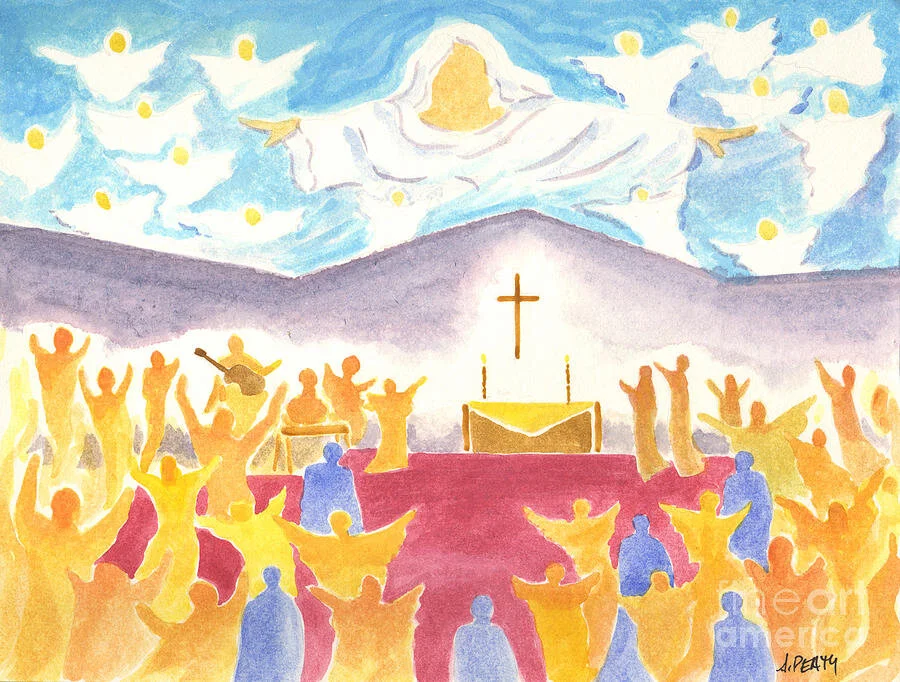The book of Revelation gives us the heavenly perspective on Jesus’ ascension to the throne, following his death and resurrection. In Revelation 7:9-17, one of our readings from this past Sunday, John sees the response of the saints in glory to Jesus’ appearance in his Father’s throne room: waving palm branches and praising God! Psalm 149, which we also read this past Sunday, seems to have been written for just such an occasion—"a new song” for a new age, music and dancing to celebrate a great victory, and eager anticipation of the Lord’s reign extending over all nations, peoples, and kings. In this psalm we find instruction for how we are to live as saints now, as we look forward to joining in celebration with those who have gone before us. The instructions of the second half of the psalm can be confusing and even off-putting at first glance, though:
Let the high praises of God be in their throats
and two-edged swords in their hands,
to execute vengeance on the nations
and punishments on the peoples,
to bind their kings with chains
and their nobles with fetters of iron,
to execute on them the judgment written!
This is honor for all his godly ones.
Praise the LORD!
The nation of Israel did have a command from the Lord to bring his earthly judgment on particular peoples and kings in the land of Canaan, but the church has a different calling. As we read in Ephesians 6:12, “we do not wrestle against flesh and blood, but against the cosmic powers over this present darkness, against the spiritual forces of evil in the heavenly places.” Not only is our enemy different (spiritual forces instead of pagan nations), our weapon is different. The two-edged sword we are to wield is stronger than any other: “For the word of God is living and active, sharper than any two-edged sword, piercing to the division of soul and of spirit, of joints and of marrow, and discerning the thoughts and intentions of the heart.” Paul gives us a beautiful picture of saints rightly wielding the weapons given to them in 1 Corinthians 14:24-25: “But if all prophesy [speak the word of God], and an unbeliever or outsider enters, he is convicted by all, he is called to account by all, the secrets of his heart are disclosed, and so, falling on his face he will worship God and declare that God is really among you.” But we will never be able to bring others to repentance and worship if we do not firstly and continually ask our King to use his sword on us, joining with David in the words of Psalm 139:23-24:
Search me, O God, and know my heart!
Try me and know my thoughts!
And see if there be any grievous way in me,
and lead me in the way everlasting!
Like our King, we must trample over death by death, daily taking up our cross to follow him. So may it one day be said of us as it said of the saints in glory (Revelation 12:11), “And they have conquered him [Satan] by the blood of the Lamb and by the word of their testimony, for they loved not their lives even unto death.”
- Rebekah




